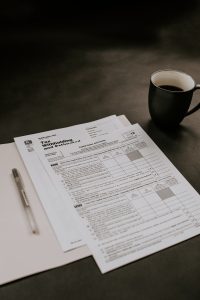Forex, short for foreign exchange, refers to the global decentralized market where currencies are traded. As a market that never sleeps, trading in forex operates 24 hours a day, five days a week. This means that forex markets are open at all times, except for weekends. However, there are specific hours of operation that traders should be aware of to optimize their trading strategies and make informed decisions.
Forex Market Hours
The forex market operates through a network of financial institutions and brokers across different time zones. Thus, the forex market’s hours of operation are divided into four major trading sessions: the Sydney session, the Tokyo session, the London session, and the New York session.
The Sydney Session
The Sydney session marks the start of the forex trading week. It begins at 10:00 PM GMT, which is 5:00 PM EST on Sunday. This session is relatively quiet, with low volatility and limited liquidity. As a result, traders typically focus on the Australian and New Zealand dollar pairs, also known as the Aussie and Kiwi pairs.
The Tokyo Session
The Tokyo session starts at 11:00 PM GMT, which is 6:00 PM EST on Sunday. It is considered the Asian trading session and is a crucial session for traders who trade the yen. The session’s volatility and liquidity increase as the Tokyo session overlaps with the Sydney session for two hours, from 11:00 PM to 1:00 AM GMT.
The London Session
The London session is the most active session in the forex market, with the highest trading volume and liquidity. It opens at 8:00 AM GMT, which is 3:00 AM EST, and overlaps with the Tokyo session for four hours from 8:00 AM to 12:00 PM GMT. The London session also overlaps with the New York session for four hours from 12:00 PM to 4:00 PM GMT. During this time, traders can expect high volatility and opportunities for profit.
The New York Session
The New York session is the last session of the day and the most active session in North America. It opens at 1:00 PM GMT, which is 8:00 AM EST, and overlaps with the London session for four hours until 5:00 PM GMT. The New York session’s volatility and liquidity are high, making it an excellent session for traders to enter and exit trades.
Factors that Affect Forex Market Hours
There are several factors that can affect forex market hours, such as daylight saving time, national holidays, and unexpected news events. For instance, during daylight saving time, the trading hours may shift by an hour in some regions, affecting the session’s opening and closing times. Also, national holidays can affect the forex market, as different regions may have different holidays, leading to lower trading volumes and liquidity.
Unexpected news events, such as political instability or natural disasters, can also have a significant impact on the forex market’s hours of operation. For instance, during the 2020 COVID-19 pandemic, the forex market experienced increased volatility and liquidity due to the pandemic’s impact on the global economy.
Conclusion
In conclusion, the forex market is open 24 hours a day, five days a week, except for weekends. However, the forex market’s hours of operation are divided into four major trading sessions: the Sydney session, the Tokyo session, the London session, and the New York session. Traders should be aware of the different sessions’ opening and closing times to optimize their trading strategies and take advantage of the market’s volatility and liquidity. Additionally, traders should also consider external factors such as daylight saving time, national holidays, and unexpected news events that can affect the forex market’s hours of operation.






